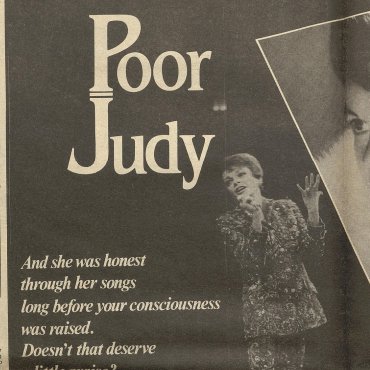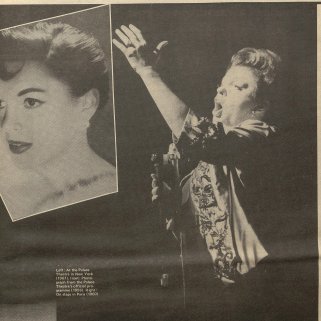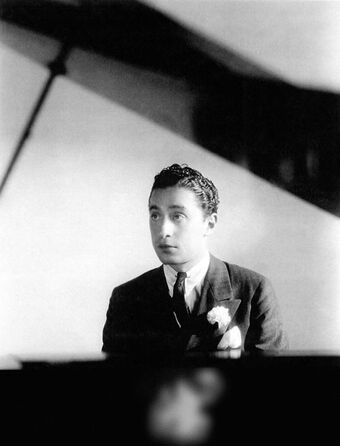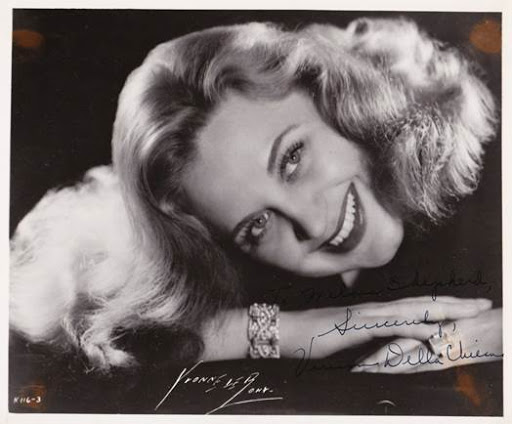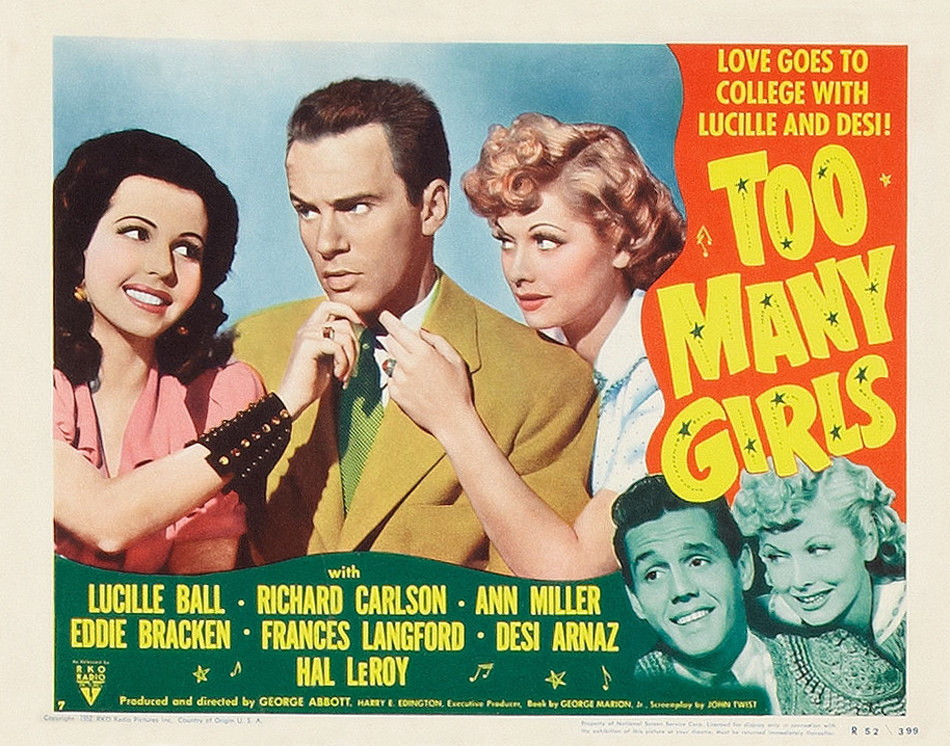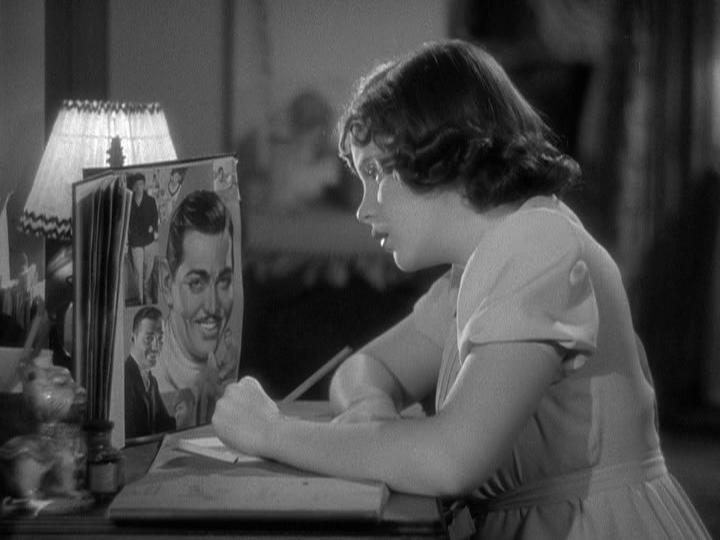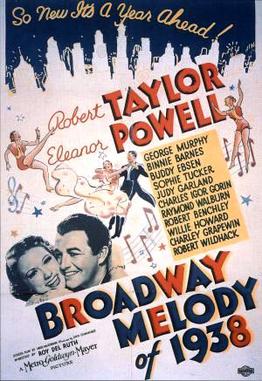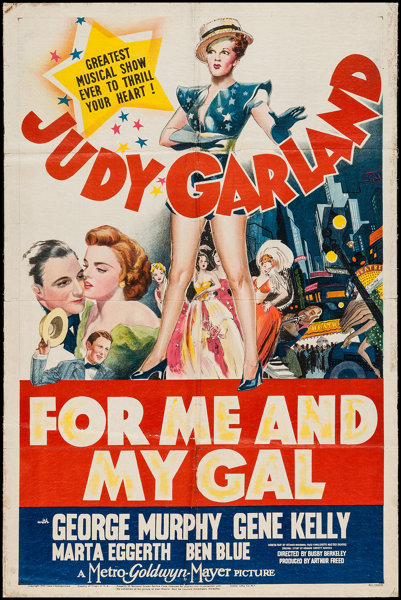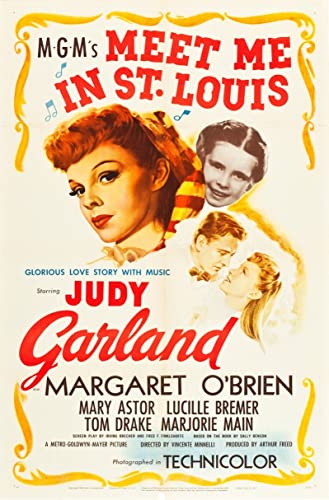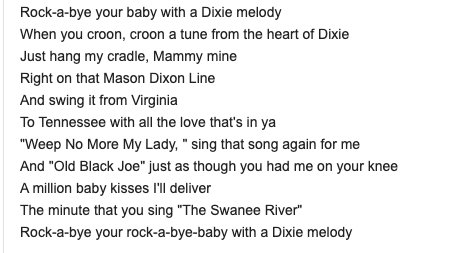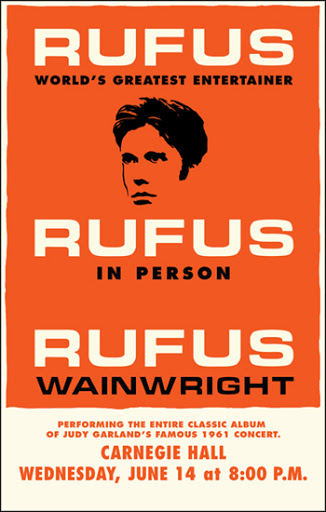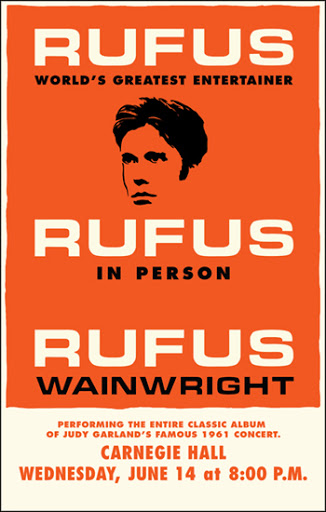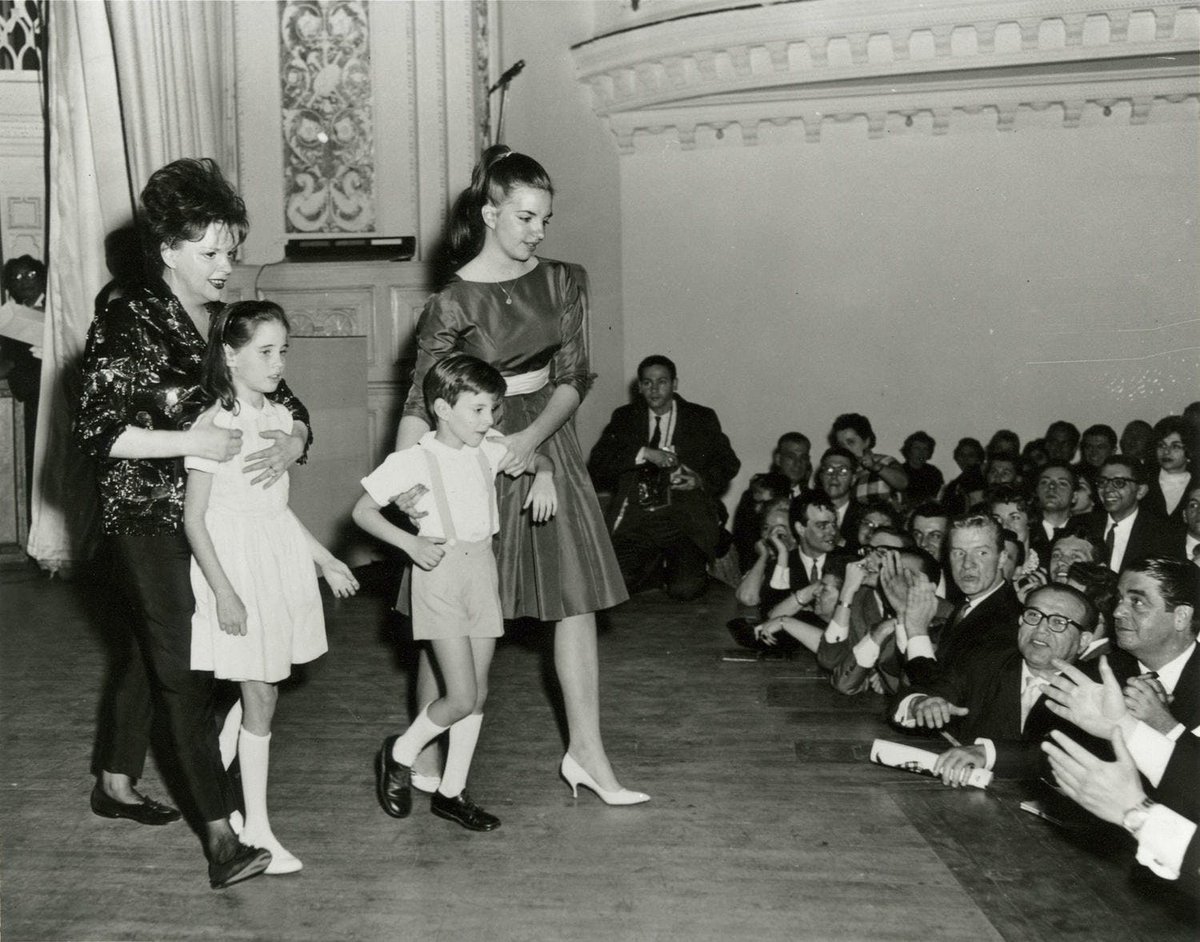59 years ago, on April 23, 1961 Judy Garland performed at Carnegie Hall. In honor of that iconic concert & my upcoming book, JUDY AT CARNEGIE HALL, I& #39;ll be live-tweeting that two-disc album in its entirety. Follow along! Book pre-order info here: https://mbetancourt.com/judy-at-carnegie-hall/">https://mbetancourt.com/judy-at-c...
Okay, no need to dawdle. Here we go! Let the “Overture” begin!
“Listen, all I can hear on this album is applause.” — Judy’s once-son-in-law and shade-throwing extraordinaire Peter Allen. (He’s not wrong, though as the opening moments of the album attest.)
Mort Lindsay, who had conducted Judy& #39;s 1961 tour, leads here the orchestra that first greets us with this overture. In a piece of beautiful gay kismet Lindsay would later go on to win an Emmy for his work on ‘Barbra Streisand: A Happening in Central Park.’
I loved doing research for this book — there’s no shortage of great writing on Judy! Two of my favorite finds (from Esquire by William Goldman, and Time by Shana Alexander respectively)
In case you wanted to feel even more jealous about those who saw this live, the audience included Myrna Loy, Richard Burton, Carol Channing, Dore Schary, Henry Fonda, Julie Andrews, Spencer Tracy, and even one Ms Katharine Hepburn!
“You stand there in the wings,” Garland shared backstage at the end of the show, “and sometimes you want to yell because the band sounds so good.” As always, she was a bundle of nerves right before making it to the stage.
“When You’re Smiling” kicks off with a girlish giggle, the briefest reminder of how nervous Judy was. Yet all that melts away as soon as she starts singing.
“When You’re Smiling (The Whole World Smiles With You)” played into Garland’s public image as a sunny All-American girl, who was, as Billy Rose would put it in 1950, as “much a national asset as our coal reserves—both of you help warm our insides.”
“It was like watching Mr. Hyde turn into Dr. Jekyll, or seeing black-and-white change into Technicolor. When she walked out onstage, she was not just a wonderful singer; she was a presence!” — Mayo Simon on seeing Garland take the stage that night.
“Forget your troubles come on, get happy” Judy sings and it’s a quick reminder that she didn’t, actually, sing “Get Happy” at Carnegie Hall. Arguably the biggest omission from that night’s repertoire.
This first medley includes "Almost Like Being In Love" and "This Can& #39;t Be Love," two songs that were written for the stage: the first comes from ‘Brigadoon,’ the latter from ‘The Boys from Syracuse.’ They were both staples by the time Judy sang them for the New York crowd.
How great does the orchestra sound? I loved spending time with this album because you truly can listen to it on loop and never get tired of it. You hear new things every time.
“I uh... I’m so excited, my goodness!” We get to hear Judy speak! One of the things I loved exploring in my book is the role of these meandering anecdotes Garland regaled her audiences with — how they make us feel like we’re there again and how they reveal Judy& #39;s more unruly side
This anecdote in particular, about this “so chic” friend of hers in Paris, is quintessential Judy: it’s self-effacing while also revealing all of her insecurities about how she looks (and how other people see her). But, above all, it shows how she loved to play the crowd.
This is the first (but won’t be the last!) time we hear about how Judy’s performance strains her body — it gets her overheated, deflates her hair, makes her sweat profusely. Hers was a life ruled by a battle against and within her body.
There’s such an intimacy to Judy’s performances on this album. In ballads like “Do it Again” she makes you feel both the strength in her voice as well as the emotional vulnerability she’s singing about. Also, I just love her diction — even when she sing-whispers she enunciates.
One of Judy’s favorite poets was Percy Bysshe Shelley who’s “To A Skylark” perhaps best describes Judy’s renditions of songs like “Do it Again”: “Our sweetest songs are those that tell of saddest thought.”
“I’ve got a bit of a frog in my throat” is just a great line and one I wish more people would use nowadays. Especially if it’s followed by someone yelling “I love you!” ("Me too!") at us from afar.
"Talk to each other, or something! Mill around!" Judy they just want to hear you sing!
“With, and I’ve forgotten the goddamn words” leads to my favorite line in the entire album which I’ll try to transcribe as best as I can: “Where’s a honey hizzot how found, are you intoxicate — my soul with your eyes?” She doesn’t miss a beat even when flubbing a line!
Judy& #39;s ability to turn her own imperfections into sublime moments is part of the reason why she so endures to this day. (Also, am I the only one who worries she& #39;ll later flub her line again even when you know she doesn& #39;t?)
Alone together, above the crowd
Beyond the world
We& #39;re not too proud to cling together
We& #39;re strong as long as we& #39;re together
Alone together, the blinding rain
The starless nights were not in vain
Somehow those lyrics play differently during a pandemic, don& #39;t you think?
Beyond the world
We& #39;re not too proud to cling together
We& #39;re strong as long as we& #39;re together
Alone together, the blinding rain
The starless nights were not in vain
Somehow those lyrics play differently during a pandemic, don& #39;t you think?
“If I’m known at all, I& #39;m known for singing very tragic sad songs,” says Judy in the understatement of the century before launching into a jazzy interlude featuring 9 guys from her band but not before, again, hamming it up as they get ready for her.
"Have you got your sticks?" While I sometimes wish this had been televised or recorded so we could SEE it, I actually love thinking of it as a lovely concert radio play with Judy as the funny emcee.
"Who Cares?" is one of five (!) George Gershwin songs in Judy’s Carnegie repertoire: despite the concert taking place in 1961, most songs were from the 20s and 30s. In many ways, the concert is an exercise in nostalgia.
Talk of a striptease! And moaning! In Carnegie Hall!
Garland& #39;s jazz set sits at the intersection of jazz’s Afro-American roots & its Tin Pan Alley commercialization. All from musicals:
Who Cares? (Of Thee I Sing, 31)
Puttin’ On The Ritz (Puttin& #39;..., 30)
How Long Has This Been Going On? (Rosalie, 28)
Just You, Just Me (Marianne, 29)
Who Cares? (Of Thee I Sing, 31)
Puttin’ On The Ritz (Puttin& #39;..., 30)
How Long Has This Been Going On? (Rosalie, 28)
Just You, Just Me (Marianne, 29)
Judy could always tell a story with her songs; every time she sang something she made it feel like she was performing a scene for you — it& #39;s no surprise she was drawn here to Broadway tunes.
Okay, the jazz interlude is fun BUT MAN THAT GOT AWAY IS NEXT and it almost (almost! I& #39;d never!) makes me want to skip "Just You, Just Me."
So unlady-like to sweat!
“Calling ‘The Man That Got Away’ a torch song,” Will Friedwald quips in his write-up of ‘Judy at Carnegie Hall,’ “is like calling the San Francisco fire a weenie roast; it’s a great roaring bonfire of a torch song.”  https://abs.twimg.com/emoji/v2/... draggable="false" alt="🔥" title="Feuer" aria-label="Emoji: Feuer">
https://abs.twimg.com/emoji/v2/... draggable="false" alt="🔥" title="Feuer" aria-label="Emoji: Feuer">
One of the things I love about the film& #39;s version of “The Man That Got Away” is that, due to it functioning as a bracketed unrehearsed staging, the Arlen/Gershwin tune was, like all torch songs, always a number about performing resilience for onlookers. https://youtu.be/UzyPMRo8ZUQ ">https://youtu.be/UzyPMRo8Z...
"...has run off and undone you" here surely has everyone remembering all of the men from Judy& #39;s life who went away. (Including Joe Mankiewicz!)
I’ve listened to this version of “The Man That Got Away” more times than I can count. It’s silky and powerful and slinky and just so rousing. And it builds and builds and builds until it crashes all over you.
The song is an affirmation of her pain, of her loss. “The Man That Got Away,” despite its title and in keeping with the torch song tradition, gives its female singer agency only insofar as she’s able to articulate her sorrows, which demand to be broadcast in all their intensity.
You know it’s mostly a gay crowd when a mere nod to Jeanette MacDonald (who first sang “San Francisco” in the same-titled musical film) gets a laugh out loud response from the audience. Also, in case you’re curious, here’s MacDonald& #39;s version: https://www.youtube.com/watch?v=QvK_gD3ulaw">https://www.youtube.com/watch...
(THUNDEROUS APPLAUSE) is how the closed-captioning would read if this had been a concert film.
Intermission! Which lets Judy go backstage and change outfits (and fan herself to stop the sweating) before coming back with the MGM staple “That’s Entertainment!” (And yes, we ARE divine, Judy).
Also, what do we think Julie Andrews and Kate Hepburn and everyone did during intermission? Go out for a smoke? Wonder if Judy would actually come back? (A valid concern at the time!)
"The plot can be hot, simply teeming with sex
A gay divorcee who is after her* ex
It could be Oedipus Rex
Where a chap kills his father and causes lots of bother."
*his
I love thinking of this as an actual gay comedy of errors. Now THAT would be Entertainment!
A gay divorcee who is after her* ex
It could be Oedipus Rex
Where a chap kills his father and causes lots of bother."
*his
I love thinking of this as an actual gay comedy of errors. Now THAT would be Entertainment!
Another anecdote! Now we& #39;re in London, away from chic Paris.
"But if you know anything about the English press... they& #39;re rather odd." Who knew we& #39;d get a mini history on British libel laws?
Much like her earlier anecdote, this one is yet again about her own insecurities with her body (back in Paris it was about her hair; here about her weight). But in true Judy fashion she turns these moments into performative jokes; she& #39;s in on it! She& #39;s telling it! But still.
"Her teeth are crooked but I think they& #39;re her own!" (There are so many punchlines to this joke!)
We go from the playful energy of “That’s Entertainment” to the truly sublime understatement of “I Can’t Give You Anything But Love” and, honestly, your fave could never.
“Diamond bracelets Woolworth doesn& #39;t sell, baby” is the kind of line that baffles but tickles me. Anyone dare walk me through what’s going on here?
Unlike other concert tours Judy did, this performance at Carnegie Hall had no vaudeville acts — it was a no-frills performance where it was just her and the orchestra and this just makes it all the more special. Songs like these show off that you really only needed her voice.
And now off we go the VERY high energy rendition of "Come Rain or Come Shine" which will tire us all out.
I feel like we should be not in Carnegie Hall but at the Cocoanut Grove or at the Copacabana.
“Come rain or shiiiiIIiiiIiiiine” (That’s it. That’s the tweet.) But also: notice how after her voice breaking the audience lavishes her with even MORE cheers and applause.
“Her audience was never sure whether she& #39;d fall into the abyss or soar like a phoenix.” — Vito Russo, getting at precisely why gay men so swoon for Ms Garland.
Garland segues from “Come Rain or Come Shine” to an acknowledgment of Harold Arlen, who not only wrote that song but also “Somewhere Over the Rainbow” (!) AND “The Man That Got Away” (!!) AND “Stormy Weather” (!!)
"Am I too close to the microphone? Am I ppp-popping?" ("No!")
ANOTHER PARIS ANECDOTE! This one involves a safety pin!
Judy’s anecdote ends with her saying she sounded like Vivian Della Chiesa, an American lyric soprano best known for her opera work who had become a nightclub singer in the 1950s.
To listen to Judy at Carnegie Hall is to get a mini-lesson in film musical history. It’s not just the Gershwin tunes but also songs like “You’re Nearer,” which, as Judy herself notes, was written for the Lucille Ball-starrer “Too Many Girls.” It’s where Lucy first met Desi!
Throughout Judy at Carnegie Hall, Garland sings songs first introduced by the likes of Fred Astaire (A Foggy Day), Al Jolson (You Made Me Love You), Ethel Merman (Stormy Weather), Irène Bordoni (Do it Again) & Jeanette MacDonald (San Francisco). She. Had. The. Range.
I don& #39;t encounter fog all that often but whenever I do I immediately say to myself "You like a foggy day? I like a foggy day!"
"If you& #39;re not too bored" !
"If Love Were All" is one of my favorite songs in the double album. In the NYT, Stephen Holden deemed this Noel Coward-penned ballad “one of the loneliest pop songs ever written” and you really can’t debate that description.
"I believe the more you love a man,
The more you give your trust,
The more you& #39;re bound to lose."
I just want to know: WHO HURT NOËL COWARD?
The more you give your trust,
The more you& #39;re bound to lose."
I just want to know: WHO HURT NOËL COWARD?
Fun fact: "Zing! Went the Strings of My Heart" is one of Judy& #39;s earliest recordings — she sang it back in 1938 (when she was 16 or so).
Another fun fact: Barbra recorded "Zing! Went the Strings of My Heart" when she was 13 but it& #39;s never been released!
Another fun fact: Barbra recorded "Zing! Went the Strings of My Heart" when she was 13 but it& #39;s never been released!
STORMY WEATHER! Which gets the dramatic intro it deserves. Because she& #39;s about to SERVE IT.
The vulnerability Garland projected while performing was constantly read as giving audiences access to her inner life. Songs like “Stormy Weather” had their own backstories (lyrically, historically) but she performed them (and audiences received them) as if they were her own.
There was no way of seeing her perform, say, "Stormy Weather" and not hear it as if she were talking about herself.
“Stormy Weather” was made famous by the likes of Ethel Waters, Lena Horne & Billie Holiday. Like many of Judy’s numbers, this bandstand staple had roots in Harlem nightlife. Here’s Horne: https://youtu.be/TPgnj5upihQ ">https://youtu.be/TPgnj5upi...
(Also, this is a reminder that Martha Wainwright’s cover in ‘Rufus Does Judy at Carnegie Hall’ is also sublime.) https://youtu.be/gfXPRcHLWvM ">https://youtu.be/gfXPRcHLW...
These belts! (I obviously won& #39;t get into it but it& #39;s the thing I missed the most when watching that one Oscar-winning performance from last year).
True story: the nugget of the idea to write JUDY AT CARNEGIE HALL came from my fascination with Judy’s rendition of “You Made Me Love You” in ‘Broadway Melody of 1938’ where she sings it to a Clark Gable photo.
I loved thinking through how Judy’s song in that film was all about unabashed fandom — the kind that she would go on to instill in many of her fans over the years: what do stars do but make us love them? (“You made me happy, sometimes you made me glad.”)
If the Overture is a snapshot of Judy’s most famous songs, this ‘olio medley’ is a rundown of Judy’s girlish anthems from ‘Broadway Melody of 1938,& #39; ‘For Me and My Gal’ and, obviously, ‘Meet Me in St. Louis.’
IMAGINE SINGING "FOR ME AND MY GAL" ALONGSIDE JUDY (AND MYRNA AND JULIE AND KATE!)
You can almost* hear the orgiastic reaction to "The Trolley Song."
*definitely
*definitely
Fun fact: Judy’s olio medley also included, at times, “The Boy Next Door” (also from ‘Meet Me in St. Louis.’) https://youtu.be/urEzamfcmPw ">https://youtu.be/urEzamfcm...
Listening to Judy sing “Rock-a-Bye Your Baby with a Dixie Melody” in 2020 is jarring. I’m sure it was to many back in 1961 (& in 1918 when Jolson first sang this "Mammy" song). Brian Currid’s “Judy Garland’s American Drag” is a great piece that wrestles with this history.
Judy’s stature as a wholly American icon can’t be uncoupled from the fact that her stardom depended on her aping and reimagining minstrel traditions and songs — like with “Rock-a-Bye Your Baby with a Dixie Melody” and “Swanee.”
Rufus Wainwright, introducing “Rock-a-Bye” in ‘Rufus Does Judy at Carnegie Hall’ notes how it’d become his favorite — it let him channel both Garland and Al Jolson “and a hundred years,” he says, “of… questionable behavior."
Should we count how many times “Somewhere Over the Rainbow” gets played from here until the end of the record?
SO MANY REQUESTS BEING SHOUTED! “I know. I’ll sing ’em all and we’ll stay all night!” she says and you better believe that everyone would have stayed. She makes it sound like a threat when for many it would have been an honor!
Judy had a habit of sitting at the edge of the stage for her renditions of “Over the Rainbow,” a moment that literally broke the barrier between performer and audience. A detail, I have to admit, Renée’s Judy nailed.
She& #39;d sang this song so many times and yet made it feel heartbreaking EVERY SINGLE TIME as if she& #39;d never sang it ever before.
“Whyyyyyyy oh whyyyyyyy can’t I?” breaks me every time. It& #39;s the line that makes this an enduring gay anthem (more so than the bits about the  https://abs.twimg.com/emoji/v2/... draggable="false" alt="🌈" title="Regenbogen" aria-label="Emoji: Regenbogen">)
https://abs.twimg.com/emoji/v2/... draggable="false" alt="🌈" title="Regenbogen" aria-label="Emoji: Regenbogen">)
We& #39;re on "Rainbow" rendition number 3, in case you were still counting.
The last three songs of the night are from 1918, 1919 and 1922 respectively. In fact, of the 28 songs that make up Judy at Carnegie Hall, only two were written in the 1950s. It& #39;s more of a time machine to the early 20th century than to 1961.
"Swanee! Swanee!
I& #39;m coming back to Swanee
Mammy, mammy
I love the old folks at home!"
It& #39;s an entire song about returning to that moment when the young singer yearns to be back to the South, back to her childhood.
I& #39;m coming back to Swanee
Mammy, mammy
I love the old folks at home!"
It& #39;s an entire song about returning to that moment when the young singer yearns to be back to the South, back to her childhood.
“Swanee” encapsulates what makes Judy at Carnegie Hall such a quintessentially American classic. Its nostalgia works hand in hand with Garland’s effervescent performance to create a document about a country’s backward-looking gaze, forever yearning for an imagined past.
Rainbow #4!
Applause/cheers begin at around 1:44 and calm down around 5:25! At which point they’re taken over by more song requests (“We don’t have an arrangement of ‘Liza’ — I have Liza here,” Judy quips)
"We only have two things left."
"DO THEM BOTH!" Sir! The nerve! (She does, though, don& #39;t worry)
"DO THEM BOTH!" Sir! The nerve! (She does, though, don& #39;t worry)
"After you& #39;ve gone and left me cryin& #39;"
In the book, I loved thinking about “After You’re Gone” as an anthem of a star gone but not forgotten — and how the technologies that keep her around also haunt us. (But also, there are SO many Judy ghost stories around, FYI).
In the book, I loved thinking about “After You’re Gone” as an anthem of a star gone but not forgotten — and how the technologies that keep her around also haunt us. (But also, there are SO many Judy ghost stories around, FYI).
Rainbow #5!
"Do you really want more, aren& #39;t you tired?"
We end with “Chicago” which, if I’m being honest, always feels a bit anticlimactic — but that’s probably because I knew and loved Judy first and foremost as a movie star while this was clearly a concert staple.
Reviews (1):
“The religious ritual of greeting, watching and listening to Judy Garland took place last night in Carnegie Hall. Indeed, what actually was to have been a concert- and was- also turned into something not too remote from a revival meeting.” — The NYT, April 24, 1961
“The religious ritual of greeting, watching and listening to Judy Garland took place last night in Carnegie Hall. Indeed, what actually was to have been a concert- and was- also turned into something not too remote from a revival meeting.” — The NYT, April 24, 1961
Reviews (2):
“Watching Miss Garland work is an effort as well as a pleasure. It& #39;s virtually impossible to remain casual and uninvolved when she& #39;s at work.” — Variety, April 26, 1961
“Watching Miss Garland work is an effort as well as a pleasure. It& #39;s virtually impossible to remain casual and uninvolved when she& #39;s at work.” — Variety, April 26, 1961
"She has the power to stir an audience to the depths of their hearts, like an old-fashioned revival meeting. We have all come through the fire together, she seems to say, & none of us is getting any younger, but we& #39;re here together, & I& #39;ll love you if you love me." —Hedda Hopper
“Good night, god bless!” as Judy says.
Thanks for following along and be sure to pre-order my book JUDY AT CARNEGIE HALL (out May 14, 2020!) https://mbetancourt.com/judy-at-carnegie-hall/">https://mbetancourt.com/judy-at-c...
Thanks for following along and be sure to pre-order my book JUDY AT CARNEGIE HALL (out May 14, 2020!) https://mbetancourt.com/judy-at-carnegie-hall/">https://mbetancourt.com/judy-at-c...

 Read on Twitter
Read on Twitter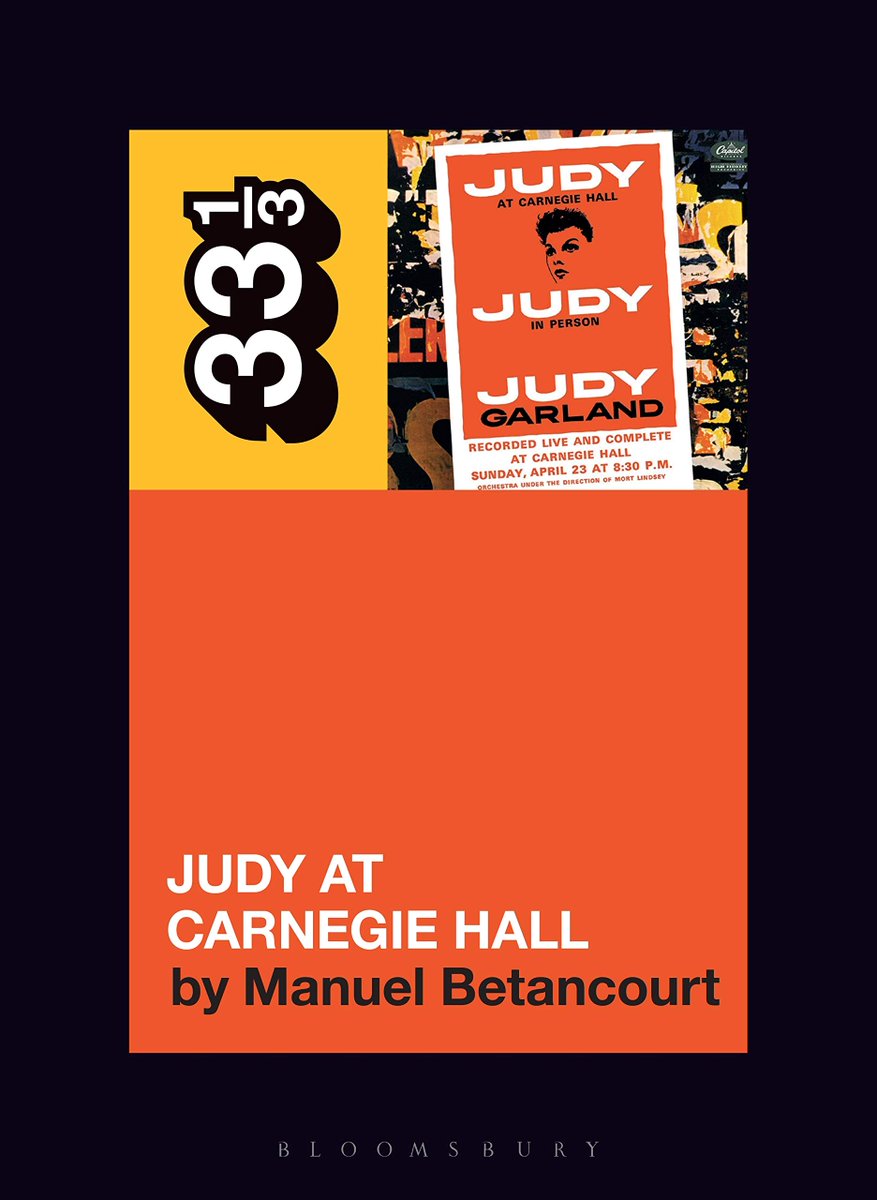
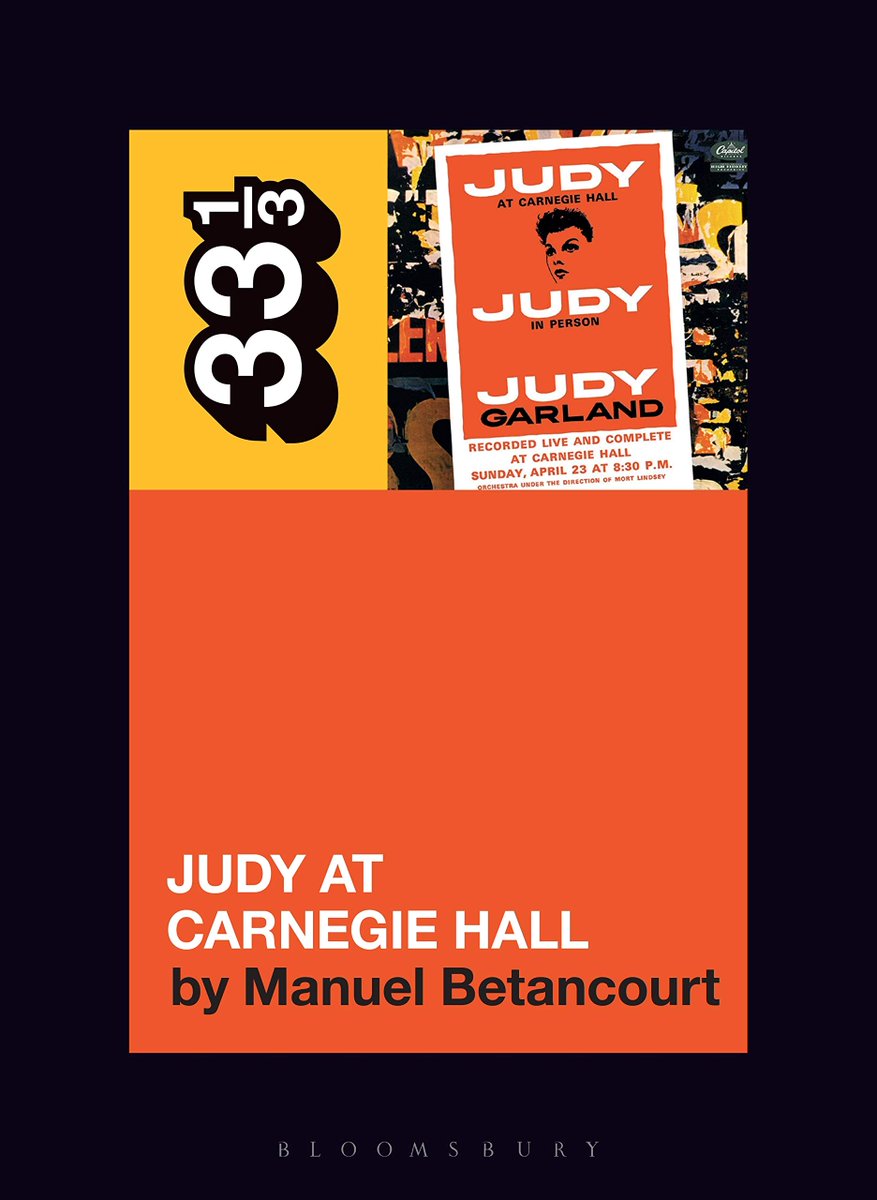
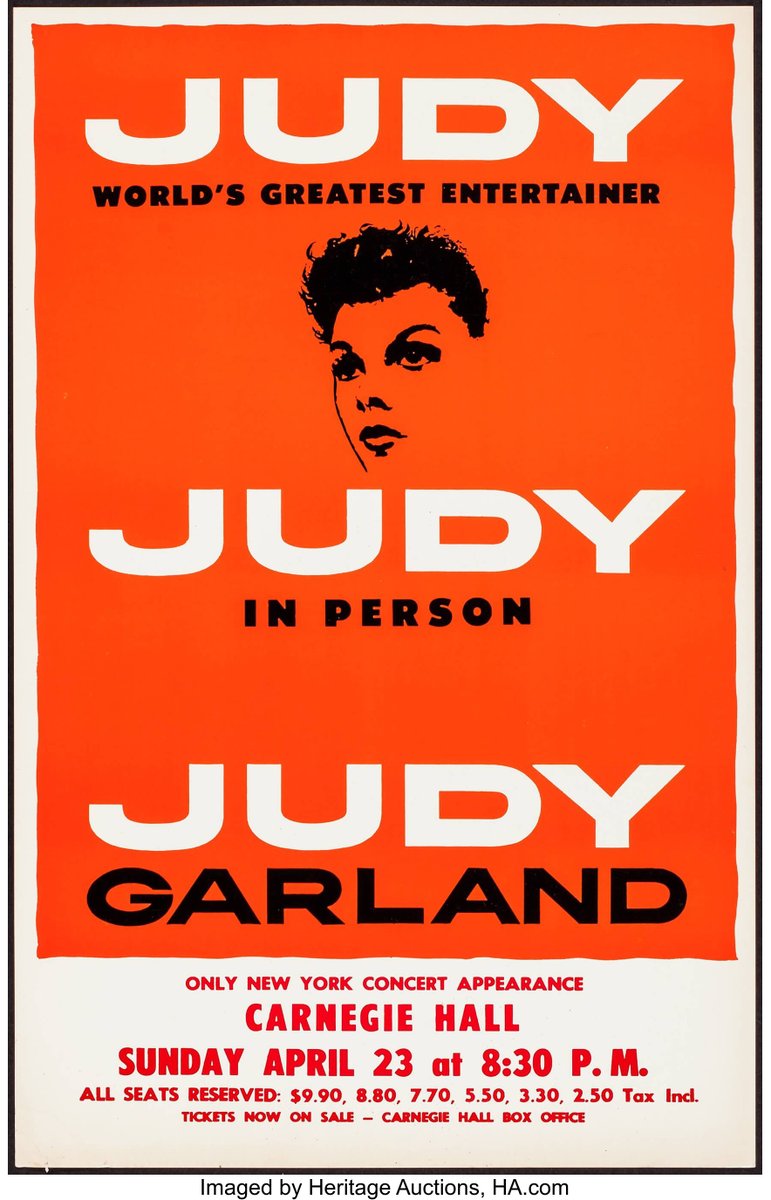
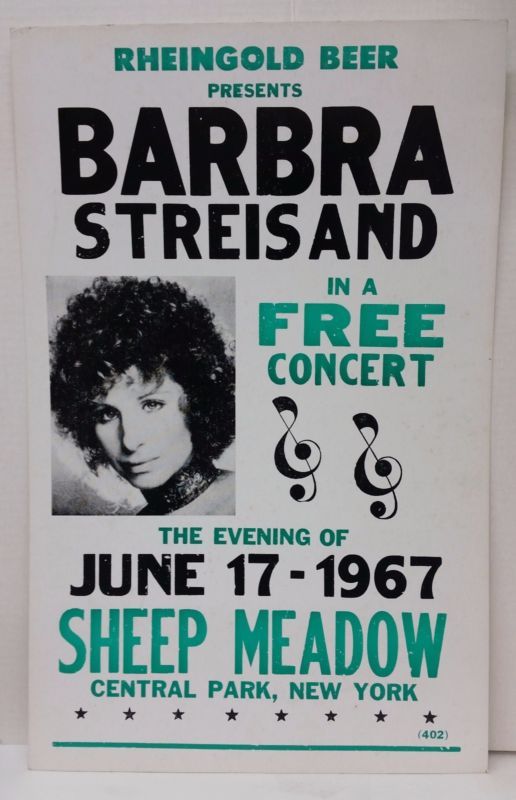
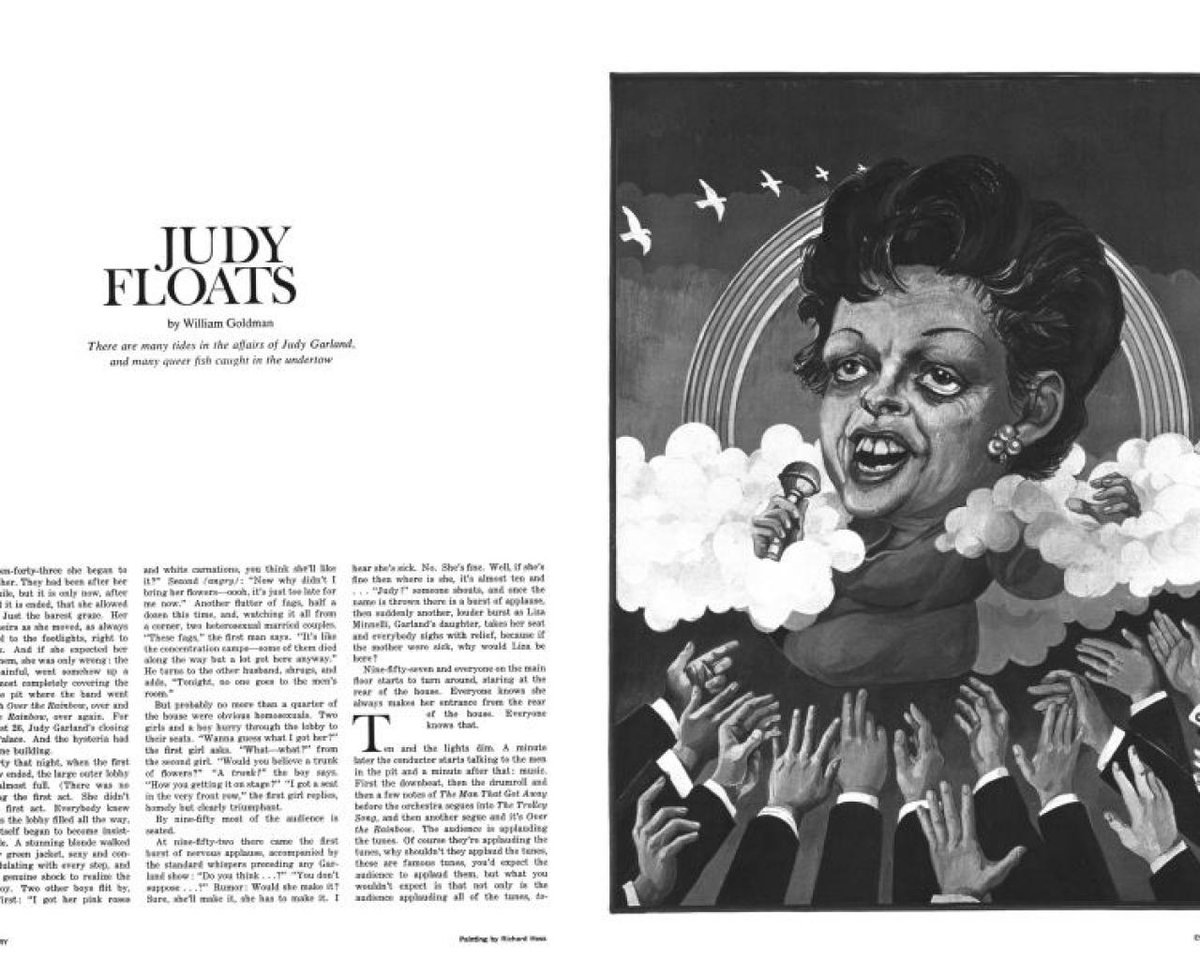
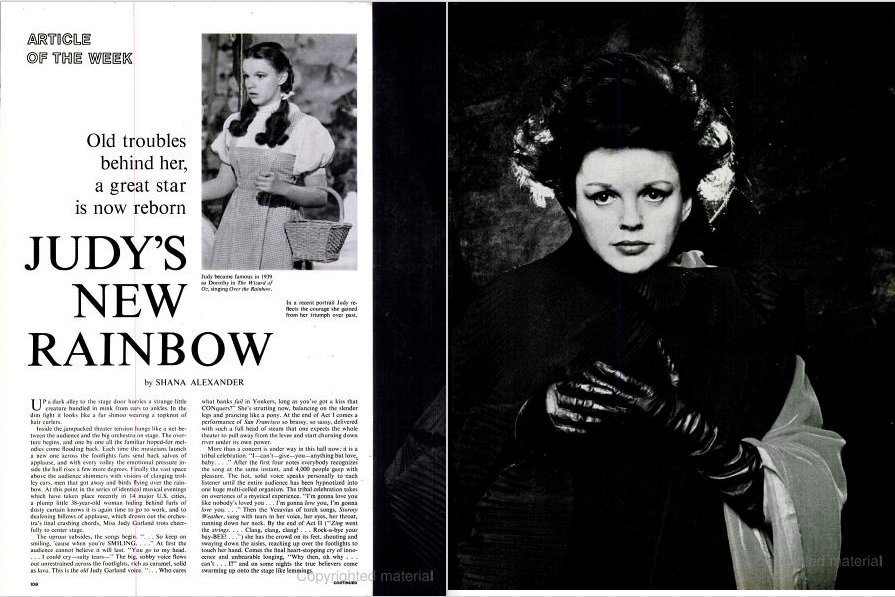
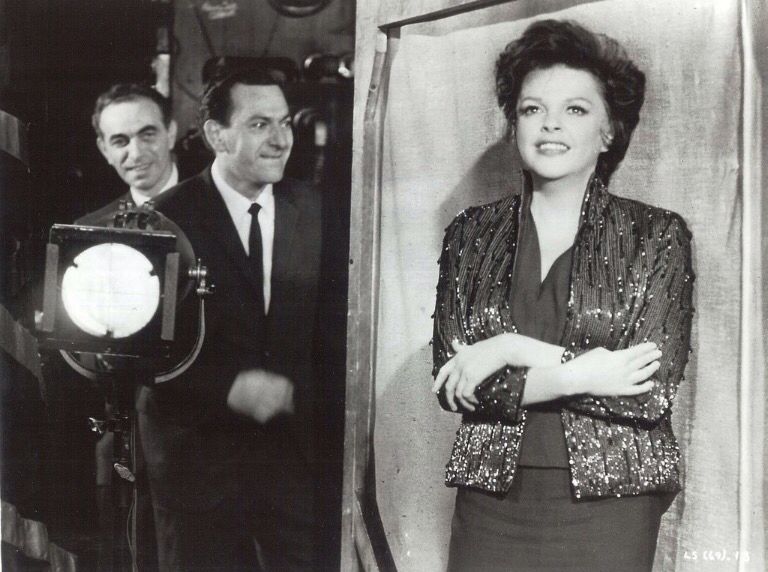
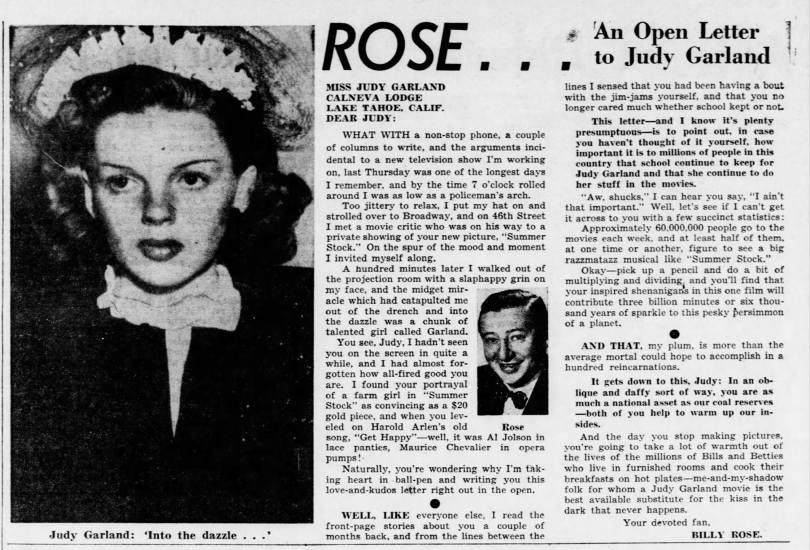
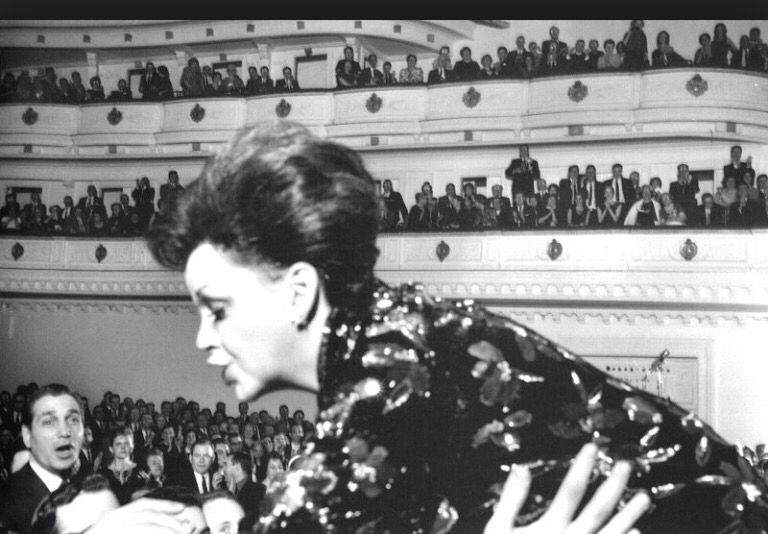
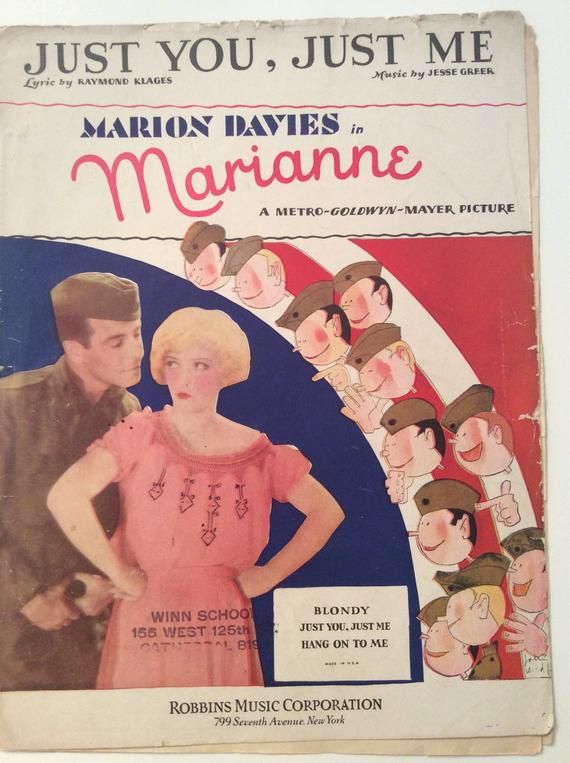
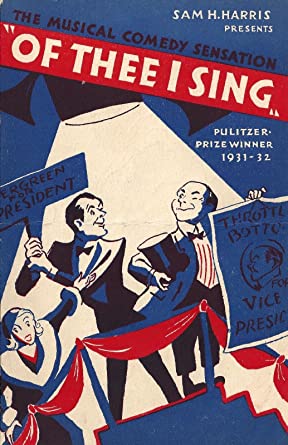
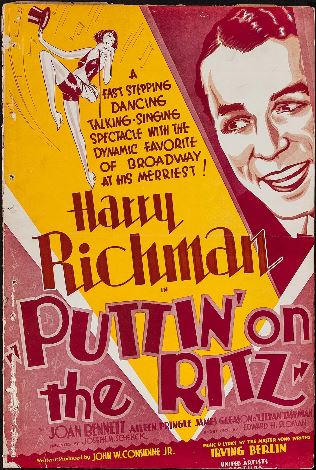
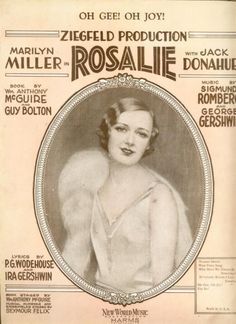
 " title="“Calling ‘The Man That Got Away’ a torch song,” Will Friedwald quips in his write-up of ‘Judy at Carnegie Hall,’ “is like calling the San Francisco fire a weenie roast; it’s a great roaring bonfire of a torch song.” https://abs.twimg.com/emoji/v2/... draggable="false" alt="🔥" title="Feuer" aria-label="Emoji: Feuer">">
" title="“Calling ‘The Man That Got Away’ a torch song,” Will Friedwald quips in his write-up of ‘Judy at Carnegie Hall,’ “is like calling the San Francisco fire a weenie roast; it’s a great roaring bonfire of a torch song.” https://abs.twimg.com/emoji/v2/... draggable="false" alt="🔥" title="Feuer" aria-label="Emoji: Feuer">">
 " title="“Calling ‘The Man That Got Away’ a torch song,” Will Friedwald quips in his write-up of ‘Judy at Carnegie Hall,’ “is like calling the San Francisco fire a weenie roast; it’s a great roaring bonfire of a torch song.” https://abs.twimg.com/emoji/v2/... draggable="false" alt="🔥" title="Feuer" aria-label="Emoji: Feuer">">
" title="“Calling ‘The Man That Got Away’ a torch song,” Will Friedwald quips in his write-up of ‘Judy at Carnegie Hall,’ “is like calling the San Francisco fire a weenie roast; it’s a great roaring bonfire of a torch song.” https://abs.twimg.com/emoji/v2/... draggable="false" alt="🔥" title="Feuer" aria-label="Emoji: Feuer">">
